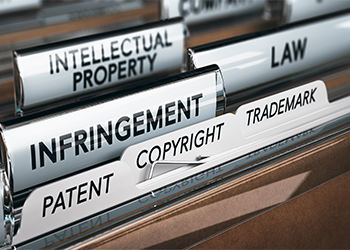Trademarks vs. Patents vs. Copyrights
March 11, 2022
 In our contemporary world, protecting your intellectual property is more important than ever. It’s essential you know how to secure your creative work and inventions, and an experienced intellectual property attorney can help you do that. Florida alone saw 5,513 patents granted in 2020—but simply obtaining a patent or trademark is only the first step. You also need to maintain it, monitor it, and pursue legal action if someone infringes upon your work. At the Law Office of Mitchell Ghaneie, P.A., I've dedicated my practice to helping small businesses and entrepreneurs obtain patents, trademarks, and copyrights, but also resolve any disputes surrounding them. If you’re in Jacksonville, Florida, or St. Augustine, and would like to know more about protecting your intellectual property, call me today to set up an appointment. I’m proud to serve clients throughout the entire state.
In our contemporary world, protecting your intellectual property is more important than ever. It’s essential you know how to secure your creative work and inventions, and an experienced intellectual property attorney can help you do that. Florida alone saw 5,513 patents granted in 2020—but simply obtaining a patent or trademark is only the first step. You also need to maintain it, monitor it, and pursue legal action if someone infringes upon your work. At the Law Office of Mitchell Ghaneie, P.A., I've dedicated my practice to helping small businesses and entrepreneurs obtain patents, trademarks, and copyrights, but also resolve any disputes surrounding them. If you’re in Jacksonville, Florida, or St. Augustine, and would like to know more about protecting your intellectual property, call me today to set up an appointment. I’m proud to serve clients throughout the entire state.
Protecting Intellectual Property
Protecting your intellectual property goes beyond simply filing an application and waiting for approval. The specific type of innovation you've created and what kind of security measures surround it must also be considered. There are three main types of protections you can pursue: trademarks, patents, and copyrights, and each requires different procedures to protect them. Furthermore, simply holding a patent or copyright doesn’t mean that your innovation will be protected by the United States Patent and Trademark Office (USPTO). It only gives you the basis for pursuing legal action if someone else infringes on your property. The USPTO will not litigate or go after those who stole your property; it’s up to you—and your attorney—to do this.
Trademarks
Trademarks are used to differentiate one business’s products from another’s, and are typically logos, designs, brand names, slogans, or mottos. A trademark can be incredibly useful when trying to set your brand apart from a competitor and offers protection to enforce the trademark if someone else tries to use it. Trademarks also send a message to the public that you have completed registration, and add validity to your products and your company standing.
Trademarks, however, only apply to the specific business that you’re in. For example, if you trademark a name that you use to brand a pair of running shoes, someone else would likely be able to use that same name to brand a soft drink without infringing on your trademark. This is why it’s very important to ensure your trademark is registered with the correct goods and services, and this task is more complicated than you think. All too often people see their trademark application denied because the incorrect product category was used, or they’ll register their trademark in a category they think will protect them—only to find out later that a competitor was legally able to use the same idea in a similar product.
Patents
There are three main types of patents: utility, design, and plant. Each one offers its own benefits and protections to be used for specific innovations.
A utility patent covers the use of your invention and the elements within the invention. These patents are the most common types and can last up to 20 years. Utility patents provide excellent protection and can cover all sorts of products such as software, chemical processes or formulas, food inventions, pharmaceuticals, or machines.
A design patent can last for 15 years and covers the designs or aesthetics of an invention. Design patents are usually less expensive than a utility patent since they only cover the ornamental design and not the machines or processes behind it. Design patents must remain ornamental and not functional, and they cover designs on items like jewelry or clothing, computer icons, fonts, or packaging
A plant patent is specifically for inventions of new plants that can reproduce asexually. Understandably, these are some of the least common patents, but they are no less important. Plant patents can last up to 20 years and could include new varieties of flowers, or fruit trees such as apple trees and rose bushes.
Copyrights
Copyrights protect literary, dramatic, musical, and artistic works. These protect original works of authorship and do not cover other inventions like systems, formulas, or ideas. You’ll most likely see copyrights for books, songs, artwork, plays, or choreographed work. Those who have a copyright can make copies of their original work, make new work based on the original work, sell or rent copies of their work to the public, and perform and display their work either live or through a recording. Copyrights also have the longest lifespan among these three types of intellectual property, typically lasting for the author’s life plus an additional 70 years.
Skilled Legal Counsel
I started my firm, the Law Office of Mitchell Ghaneie, P.A., to help people just like you grow and succeed in your field. If you're looking for a business attorney experienced in intellectual property law and are in the Jacksonville, Florida area, reach out to my office today to schedule a one-on-one consultation.